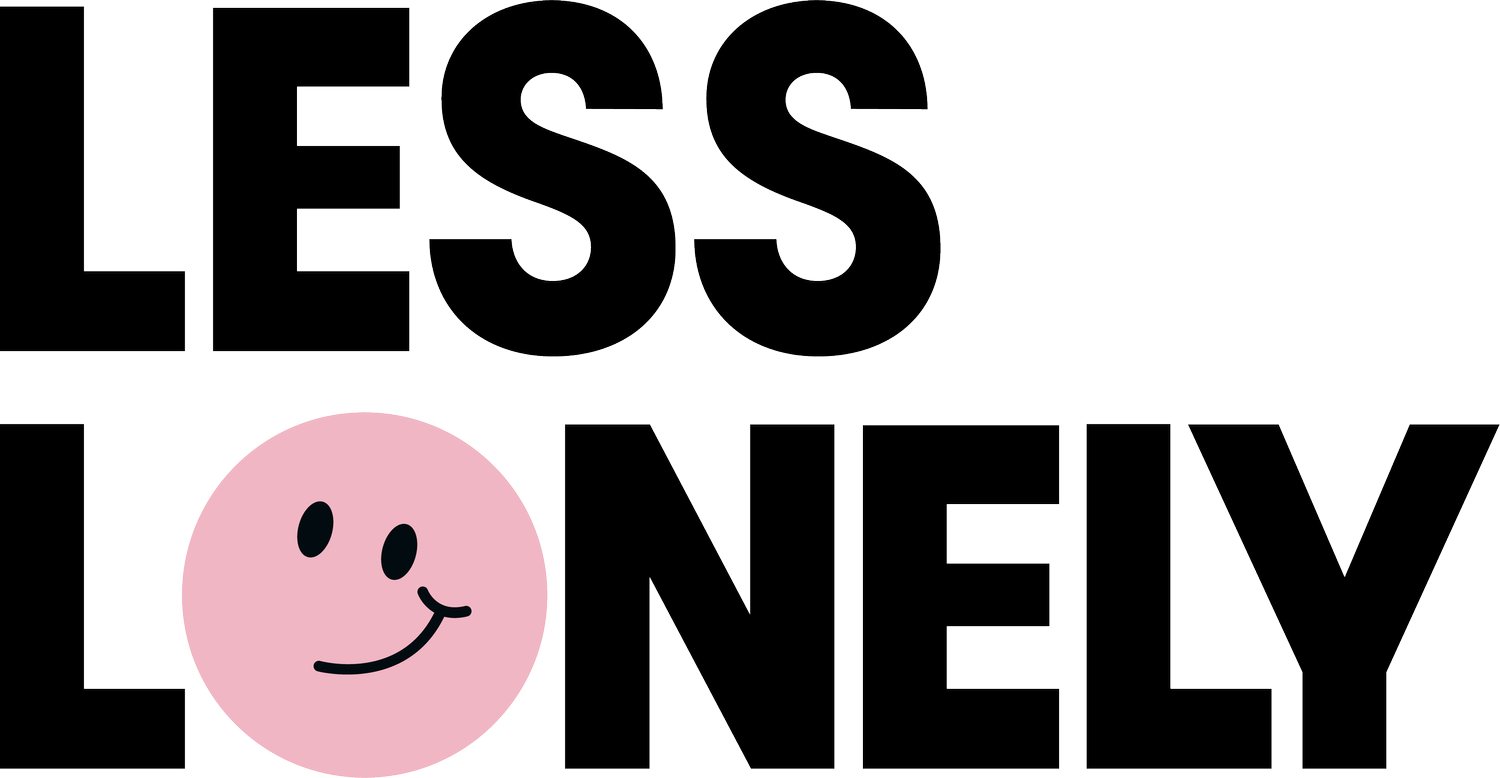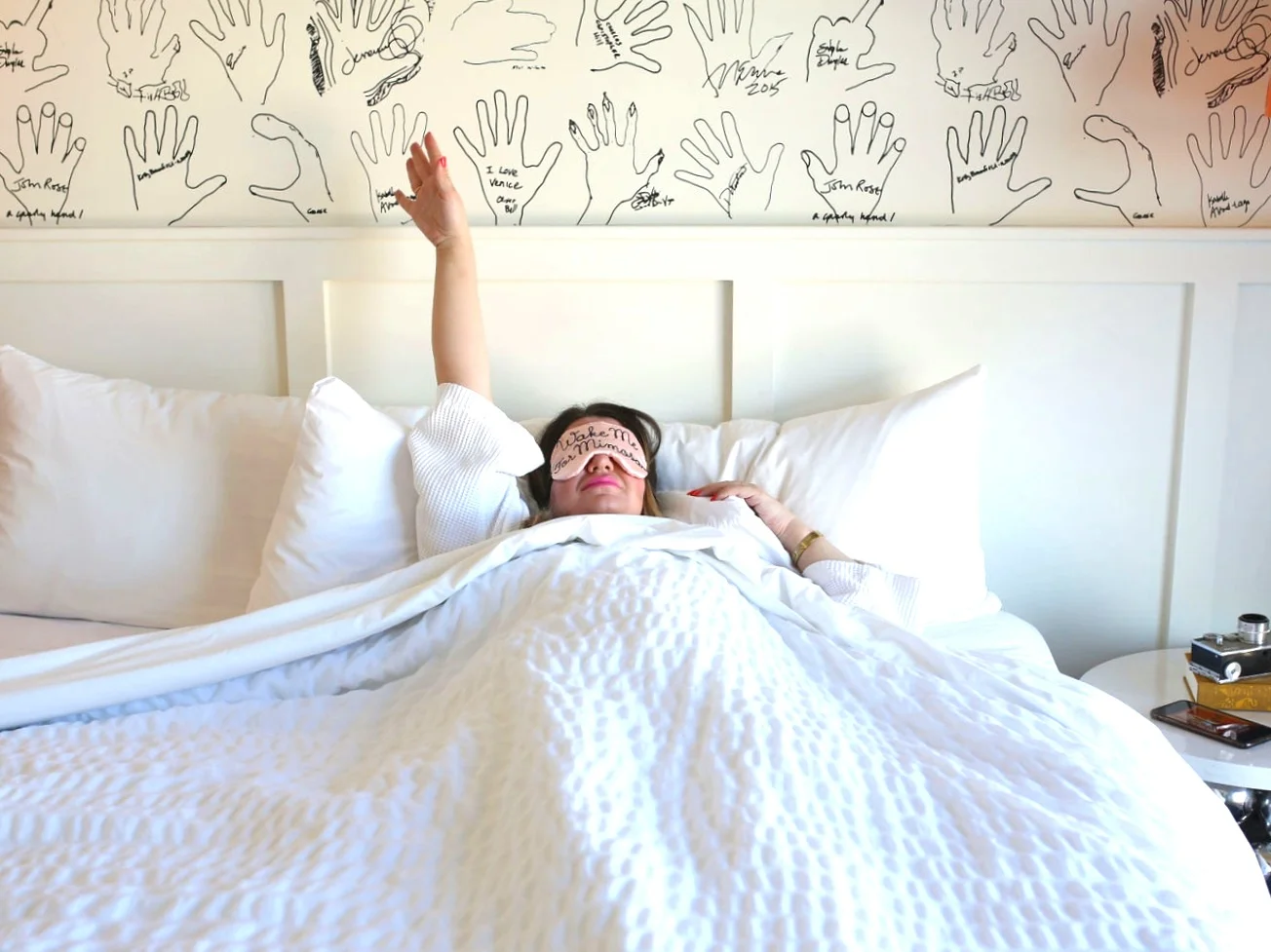Anxiety right before bed? Doctor approved tips to help you sleep easy.
You’d think that getting all cozied up at home in your silk pajamas, Netflix in the background and a cup of chamomile tea would keep you far away from a stint with anxiety. You’re finally far enough away from your nagging boss, not dealing with impatient commuters, and have anyone to answer to but yourself (i.e. your email is finally out of service for the night). So, why in the world do you feel more anxious now than you did all day long?
It seems like the complete opposite of how anxiety should work, but that’s kind of the hallmark of dealing with it, right? You never know when it’s going to strike. As it turns out, anxiety being minimal during the day then coming in like a ton of bricks once you’re winding down at night is a super-common experience. “It’s the first time of the day when no one is asking you any questions or you’re trying to complete a task. It’s when you’re first alone with your thoughts, and the entire day’s worth of thoughts come into your mind, which causes a level of anxiety,” clinical psychologist Michael Breus, PhD says.
So sure, it’s totally normal—just not the most fun—to lay in bed sweating about any and every worry you held off during the day. So, how are you actually supposed to wind down and get some shut-eye with all those thoughts hovering over you? To combat the anxiety—and even any physical symptoms that arise, like heavy breathing, a rapid heart rate, and chills—it helps to start preparing hours before you hit the sheets, then focus on calming your body down once you do.
“It takes all day to create a sleep problem at night. If you ignore your stress and anxiety all day long, you can’t expect it to magically disappear at bedtime, allowing you to sleep soundly until morning,” Dr. Breus says. “Relaxation exercises, mindfulness meditation, and mind-body exercise can all help reduce your stress throughout the day, as well as in the evenings before bedtime. Many of the natural supplements that help sleep are also beneficial for stress and anxiety, including magnolia bark, magnesium, and CBD.”
I’ve turned to a supplement called Sleep Relief, recommended to me by Dr. John Neustadt of NBI, that has helped me with my severe sleep struggles. I love Sleep Relief because it has a biphasic, time-release technology that releases clinically tested nutrients formula in two stages. The quick-release first stage helps you gently fall asleep. The slow-release second stage helps you stay asleep and wake refreshed and ready for your day.
Combining Sleep Relief with mindfulness apps like Happy Not Perfect, Headspace and Calm have helped me get a better night’s sleep while managing my anxiety.
So there you have it: a doctor-approved reason to add some CBD to your diet right before bedtime. By giving yourself a little TLC throughout the day and after you get home at night, you’ll be primed to getting a great night of sleep. Of course, if symptoms persist, seek the opinion of a doctor so you can find a solution that works for you.



